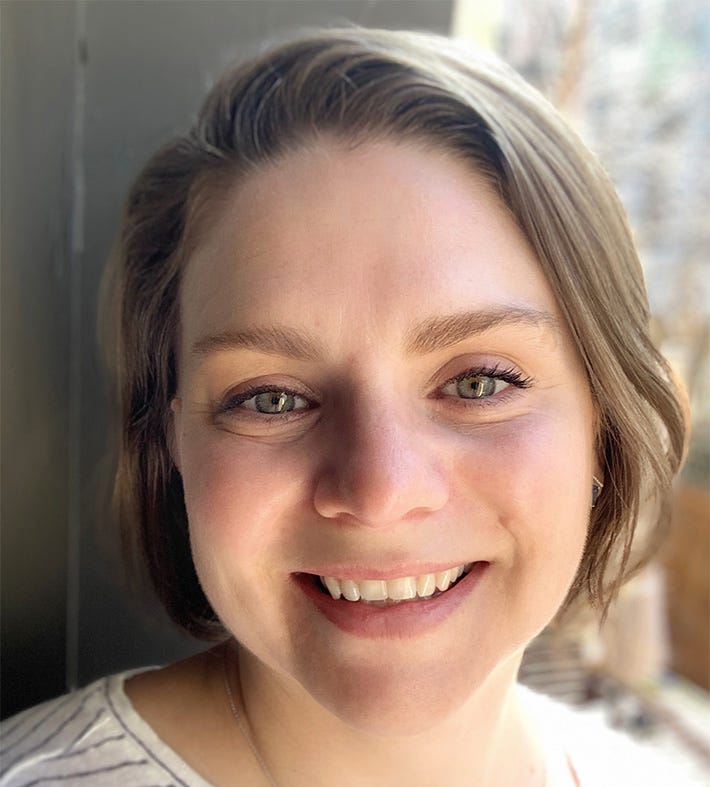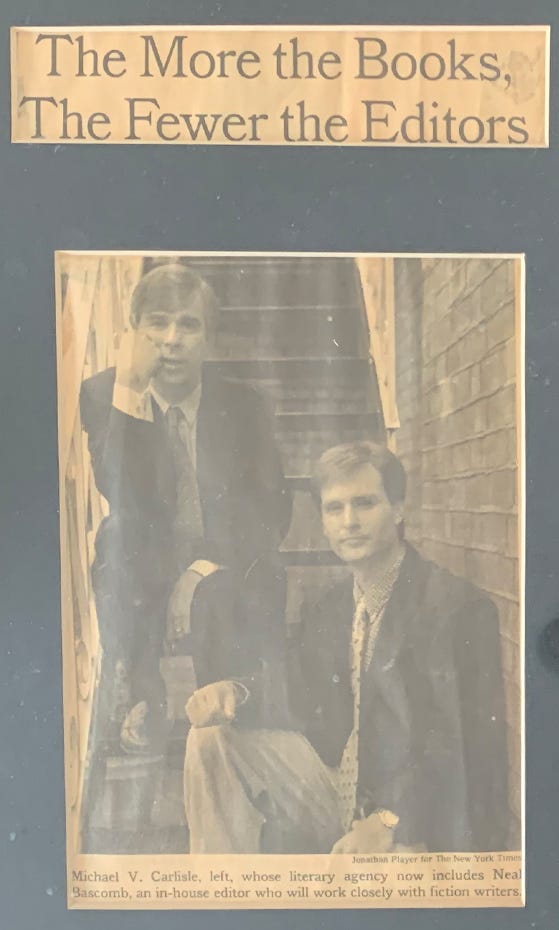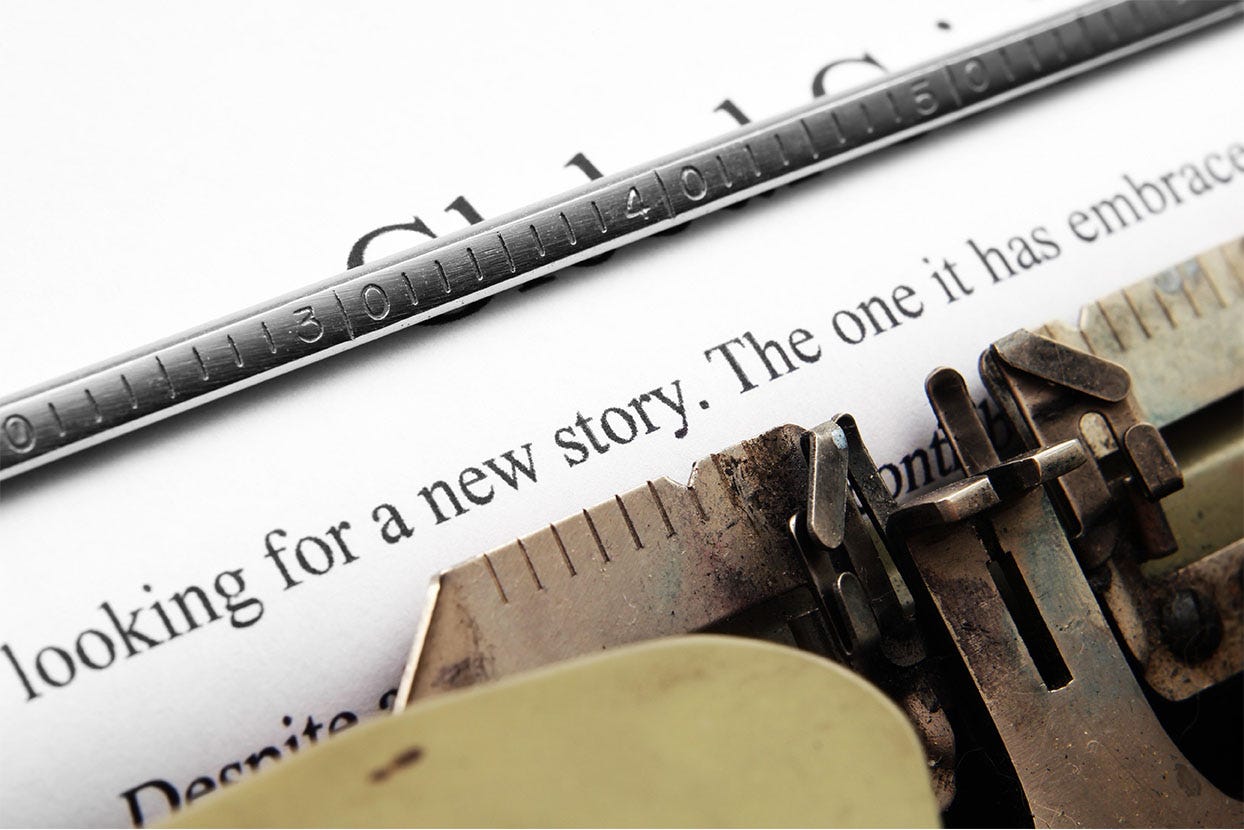How I Sold a Zombie Apocalypse
Meet Kate McKean, Literary Agent and Master of the Publishing Long Game
A little personal memory before I launch into my first CreatorCraft Q&A. Future interviews will feature artists as well as industry insiders, speaking to how they go about their work, whether it’s in the field of books, art, film, theater, music, dance, or another creative pursuit.
It was the summer of 1998. I was living in the 14th arrondissement of Paris, inhabiting the cliché of a twenty-something ex-pat writing the great American novel. Called Chasing Blue, it was as bad as the title sounds. My daily routine consisted of walking from one café to the next to scrawl a few hundred words. I was living with two French natives in an expansive (but still inexpensive) apartment. With two decks and an elevator that opened up into the living room, it was a place made for parties. One roommate smoked incessantly, never by an open window. In fact, I believe she closed them before lighting up. The other was about as cool as they rolled, ran an upstart magazine, and somehow became a life-long friend. To add to my social circle, I had a French girlfriend, who was an artist, translator, and nicer to me than I deserved.
Life seemed perfect, even though it didn’t seem to have much future in it.
Then I got a call from Michael Carlisle, a literary agent at William Morris in New York. We had known each other in my previous life as a book editor. He explained how he was leaving the big talent agency to start his own shop. He wanted me to work for him, both as a junior literary agent and in-house editor for his stable of authors. The opportunity sounded exciting; I liked and respected Michael, and since I was running short on savings and even shorter in my confidence as a writer, I took him up on the offer. Weeks later, I was in London for a photo shoot with the New York Times. It was my first time in the ‘Gray Lady’, and the two of us were posed on some gritty fire stairs outside a London hotel. (excuse the fact that I look like a man-child and Michael is pretty glum)
For the next year, I worked as a literary agent. We had a tony office on the Upper East Side, right off Madison Avenue. There were catered parties, sumptuous lunches, author meet-and-greets, and lots of reading. For a time, I loved the process of recruiting writers, proposing book ideas, shaping proposals, and pitching to publishers. But truth told I wanted to be one of those writers, not the one selling their books, and my interest in the job waned. I thought about quitting but didn’t have the guts to give up a job with decent pay, fun perks, and an all-access pass to the publishing world. Nonetheless, I invested most of my time in side projects and my writing. Wisely and graciously (although it didn’t feel that way at the moment), Michael fired me almost to the day of my first anniversary.
It was the best thing that could have happened to me, and I still look fondly back on that brief life as a literary agent. In the spirit of those days, I’ve interviewed Kate McKean, who works at the Howard Morhaim Literary Agency in New York, to offer a glimpse of her own WorkCraft.
As background on Kate, she earned her master’s degree in fiction writing at the University of Southern Mississippi and began her publishing career at the University Press of Florida. She represents New York Times bestselling authors in a wide variety of genres including Alix E. Harrow's The Once and Future Witches and Trung Le Nguyen's award-winning The Magic Fish. As if this was not enough to keep her busy, Kate is an adjunct professor at New York University, writes her own books, and publishes a weekly newsletter called AGENTS & BOOKS (which is tremendous).
Kate and I first met when she was an assistant at the literary agency where I was formerly represented. No matter how smart or connected one might be, it’s a right of passage to start at the bottom in the publishing industry: answering phone calls, making lunch dates for the boss, reading ‘slush’ (unsolicited manuscripts), dealing with rights issues, sending author payments, and fielding the all kinds of crazy that surrounds this world. Kate managed all this with elan, and it’s no surprise she’s now at the top of the game.
Tell us about a writer you ‘discovered’ and fostered into a bestseller? What does that process/craft look like?
My favorite example of this is NYT bestselling author Madeleine Roux. A billion years ago, it seems, (but more like 13 or thereabouts) my brother sent me a link to a blogger site that he was reading for fun. It was a fictional blog written from the perspective of someone who was trying to survive the zombie apocalypse by hiding out in a bookstore. People were participating in the world of the blog in the comments, saying things like "Seattle is safe! Get here!" or "Don't come to Ohio! We're overrun!" and I thought, either this author is seeding the comments herself, which is genius, or people are playing along because the world she's built is just so good. Either way, it was the sign of a great writer, and the blog posts themselves backed that up too. But the author hadn't included any contact info! I didn't want to spoil the fun, so I posted a comment that was like "Allison, I have to talk to you here's my email." (Allison was the character's name.) And Maddie reached out to me like ummm, hello? and I said Oh hi, I'm a literary agent and I think you're great. And the rest is history. We're on book 14 or 15 I think now? I've lost count.
That story doesn't, of course, get to your question on the process/craft of fostering someone into a best seller, because I don't think you can actually do that. I don't think there is anything I can do on my end to make anyone a best seller. The publisher can sometimes do that if they throw enough money at the marketing of something, but that doesn't guarantee it, and they can't do that to every book. The bestseller list is fickle and all I can do to help my writers get on to it is help them hone their ideas into the best versions they can be while staying true to the author's vision, and hope for the best. Maddie and I have always worked well together in an editorial way, which is usually me saying hey what about this? or I don't know about this part. and Maddie saying Ohhhhh right. How about this fix? Or this? Or THIS!? and coming up with something spectacular. Editorial notes are not a prescription that will fix a story and lead to guaranteed success. They're just reactions of one reader to one writer's work. If a writer's only goal is to hit the list, well, I would probably help them find other goals to work toward as well, so they don't end up disappointed forever.
What inspired you to become an agent versus an editor or other role in publishing? How do you distinguish yourself among other agents?
Keep reading with a 7-day free trial
Subscribe to Work/Craft/Life to keep reading this post and get 7 days of free access to the full post archives.




